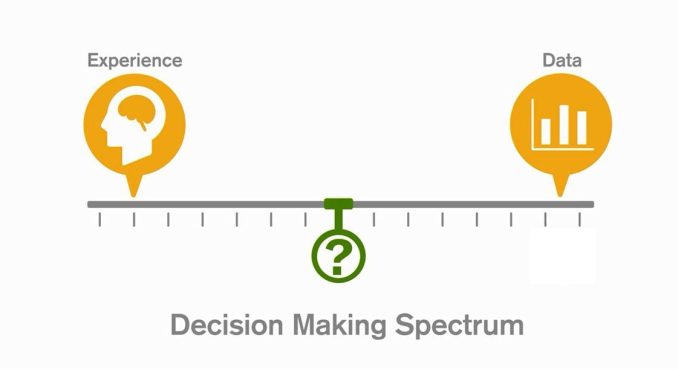
Data analytics plays an integral role in today's business landscape, providing organizations with valuable insights to drive informed decision-making. By examining vast amounts of data, businesses can uncover hidden patterns, trends, and correlations, facilitating a deeper understanding of their operations, customers, and market dynamics. In this article, we will explore the importance of data analytics and how it enables informed decision-making across various industries.
The Power of Data Analytics
Data analytics empowers businesses to extract actionable information from their data. By applying statistical techniques and algorithms, organizations can transform complex datasets into meaningful insights. Through the use of data visualization tools and techniques, these insights can be presented in a visually appealing manner, making it easier for decision-makers to understand and interpret the findings.
1. Identifying Trends and Patterns
Data analytics helps businesses identify trends and patterns that may not be immediately apparent. By analyzing historical data, organizations can uncover hidden correlations and relationships, allowing them to make predictions about future events. For example, a retail company can analyze customer purchase history to identify patterns in buying behavior and optimize their inventory management, ensuring they have the right stock levels to meet consumer demand.
2. Customer Segmentation and Personalization
Data analytics enables businesses to segment their customer base based on various attributes such as demographics, purchase history, and browsing behavior. This segmentation allows organizations to tailor their marketing efforts and product offerings to specific customer segments, increasing the chances of engagement and conversion. For instance, an e-commerce company can use data analytics to create personalized product recommendations for each customer, enhancing their overall shopping experience.
3. Improving Operational Efficiency
Data analytics can uncover inefficiencies and bottlenecks within business processes, enabling organizations to streamline operations and reduce costs. By examining data related to production, supply chain management, and resource allocation, businesses can identify areas of improvement. For example, a manufacturing company can utilize data analytics to optimize their production schedule, reducing idle time and maximizing output.
Data-Driven Decision-Making in Different Industries
1. Healthcare
Data analytics has revolutionized the healthcare industry by enabling doctors and researchers to make data-driven decisions. By analyzing patient records, medical research, and clinical trials, healthcare professionals can uncover insights that aid in disease diagnosis, treatment plans, and improving patient outcomes. Additionally, data analytics can help identify trends in public health, allowing for early detection and prevention of potential outbreaks.
2. Retail
The retail industry heavily relies on data analytics to understand customer behavior and optimize business operations. By analyzing sales data, customer preferences, and market trends, retailers can make informed decisions regarding inventory management, pricing strategies, and targeted marketing campaigns. Data analytics also plays a crucial role in demand forecasting, ensuring that retailers have the right products in stock and avoid excessive inventory costs.
3. Finance
Financial institutions leverage data analytics to manage risk, detect fraud, and make informed investment decisions. By examining historical market data, financial analysts can identify potential investment opportunities and develop investment strategies. Data analytics is also used for credit scoring, allowing lenders to assess a borrower's creditworthiness based on various factors, such as payment history and debt-to-income ratio.
The Future of Data Analytics
The field of data analytics continues to evolve rapidly, driven by advancements in technology and an increasing emphasis on data-driven decision-making. With the advent of big data, machine learning, and artificial intelligence, businesses are now able to process and analyze massive volumes of data in real-time, providing near-instantaneous insights. This enables organizations to make timely, data-driven decisions that have a significant impact on their success.
Conclusion
Data analytics has become a critical component of informed decision-making across various industries. By leveraging the power of data, organizations can gain valuable insights and transform them into actionable strategies. As technology continues to advance, the importance of data analytics will only grow, allowing businesses to stay competitive and adapt to rapidly changing market conditions.
